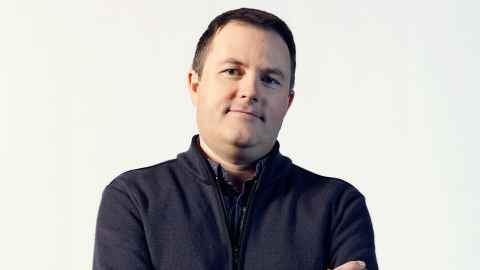Take 10 with... Shaun Hendy
Professor Shaun Hendy, from Te Pūnaha Matatini and the Department of Physics, gives us 10 minutes of his time to discuss how complex systems change their behaviour as they grow in size and diversity.

1. Describe your research topic to us in 10 words or less.
I study the emergent properties of complex systems.
2. Now describe it in everyday terms!
I am interested in how complex systems – from atoms to people –change their behaviour as they grow in size and diversity. I started out looking at the properties of nanoscale materials, which might consist of a few hundred to billions of atoms, and how these might depend on size and composition. This turns out to be important in nanotechnology, where you can tune the properties of a material or device by selecting its size. But I have also looked at similar effects in economics – how do cities change as they increase in size or economic diversity for instance? It turns out that the more economically diverse a city is, the more innovative it is. This has important implications for New Zealand, where we often try to counteract our small size by encouraging deeper specialisation.
3. What are some of the day-to-day research activities you carry out?
Day-to-day, my research typically involves a mixture of pen-and-paper mathematics, computer simulation, and data crunching. These days I mostly focus on the mathematics, while my students do most of the coding. I try to keep up, but it is getting harder and harder. I also put a lot of effort into communicating what I do, both
to other scientists and wider audiences, so a typical day might also involve talking to a journalist or writing an article like this!
4. What do you enjoy most about your research?
I really enjoy the occasions when I find I am able to explain something complicated in a simple intuitive way. This is what I try to do with the mathematics I develop. While not everybody speaks mathematics, if I can build a good mathematical model then I can often use that to explain things in an intuitive way. This is what I really enjoy.
5. Tell us something that has surprised or amused you in the course of your research (it could be a discovery, an anecdote or even a funny incident).
One of my PhD students came to me with a computer simulation that seemed to contradict one of the key pieces of received wisdom in nanotechnology. I just assumed there was just something wrong with our simulation, so I sent him away to solve a mathematical model that we had developed instead. He came back sheepishly a few days later to tell me that our model was also wrong. It took me a day or so to realise it, but the fact that we had got the same ‘wrong’ result from two completely different approaches was telling us that we were actually right. One of the top people in our field, who was responsible for establishing much of that received wisdom, later told me that our paper on this finding was a revelation.
6. How have you approached any challenges you’ve faced in your research?
As a Pākehā man, I get really frustrated to see the challenges that others face that I haven’t had to. In fact, I have seen many examples of outright sexism and racism in research. I have tried to use my position to create opportunities for others, by speaking about it publicly, and writing about it when I can. I think we’ve still got a long way to go to create a truly inclusive research culture that is self-reflective and able to critique itself.
7. What questions have emerged as a result?
How do you create an inclusive research environment? We have set out to try to do that within Te Pūnaha Matatini, which is one of the ten national Centres of Research Excellence. We are still learning but we’ve had some successes, and we have found that one of the co-benefits of an environment that is more gender and ethnically inclusive is that it greatly facilitates inter-disciplinary interactions.
8. What kind of impact do you hope your research will have?
I have been really pleased to see my research translated into government policy in a number of areas, particularly in science and innovation, but I have also seen that this is not a common occurrence. I am really interested in finding ways to facilitate the uptake of research by government – that means changing how we approach our research as well as making changes in the way that policy gets made. Some of my recent work has been focused on how that can be done. For instance, several of my students started a company last year called Nebula that uses machine learning methods to track the impact of science on policy.
9. If you collaborate across the faculty or University, or even outside the University, who do you work with and how does it benefit your research?
I collaborate really widely with people from government and industry, but most recently I have been working with Tahu Kukutai and Maui Hudson from the University of Waikato to look at how the use of algorithms by government can further disadvantage indigenous people, as well as coming up with frameworks that enable the benefits while preventing the harms. It is incredibly stimulating to work with people with very different expertise; you are constantly learning and reevaluating your own understanding of issues.
10. What one piece of advice would you give your younger, less experienced research self?
Enrol in a te reo Māori class before they get too popular!